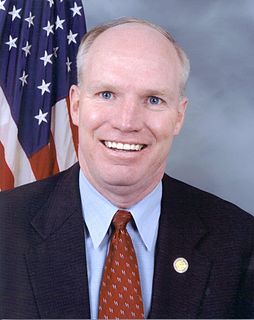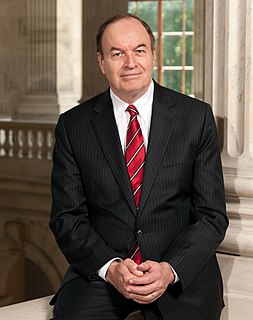A Quote by Paul Singer
The Orderly Liquidation Authority prescribed by Dodd-Frank should be repealed and replaced by an amendment to the U.S. Bankruptcy Code which would operate to prevent cross-default provisions from impacting derivatives books so long as mark-to-market payments are being made in a timely fashion.
Related Quotes
Congressman Frank and Senator Dodd wanted the government to push financial institutions to lend to people they would not lend to otherwise, because of the risk of default. ... The idea that politicians can assess risks better than people who have spent their whole careers assessing risks should have been so obviously absurd that no one would take it seriously.
Fannie Mae and Freddie Mac - two bloated and corrupt government-sponsored programs - contributed heavily to the crisis.In order to prevent another crisis, we need to do what we should have done years ago - reform Fannie Mae and Freddie Mac. We also need to repeal Dodd-Frank, the Democrats' failed solution. Under Dodd-Frank, 10 banks too big to fail have become five banks too big to fail. Thousands of community banks have gone out of business.
I have very deep concern about the legacy of the Rehnquist court and its efforts to restrict congressional authority to enact legislation by adopting a very narrow view of several provisions of the Constitution, including the commerce clause and the 14th Amendment. This trend, I believe, if continued, would restrict and could even prevent the Congress from addressing major environmental and social issues of the future.
I mean, we've always had gold bugs, but now we sort of realize that Treasure Bills might be in the same category. And we have derivatives like credit default swaps which are in this category, and we have derivatives like volatilities that are actually an asset class that we can invest in which are now - would out perform if we have another financial crisis.
Dodd-Frank greatly expanded the regulatory reach of the Federal Reserve. It did not, however, examine whether it was correctly structured to account for these new and expansive powers. Therefore, the Committee will be examining the appropriateness of the Fed's current structure in a post Dodd-Frank world.
When I so pressingly urge a strict observance of all the laws, let me not be understood as saying there are no bad laws, nor that grievances may not arise, for the redress of which, no legal provisions have been made. I mean to say no such thing. But I do mean to say, that, although bad laws, if they exist, should be repealed as soon as possible, still while they continue in force, for the sake of example, they should be religiously observed.



































